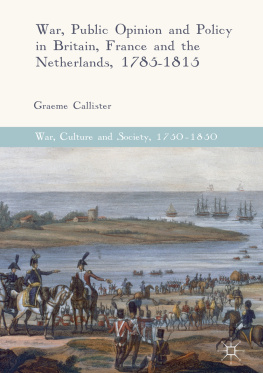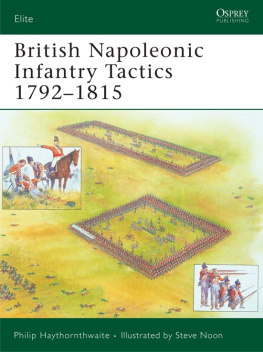This edition is published by PICKLE PARTNERS PUBLISHING www.picklepartnerspublishing.com
To join our mailing list for new titles or for issues with our books contact@picklepartnerspublishing.com
Text originally published in 1846 under the same title.
Pickle Partners Publishing 2013, all rights reserved. No part of this publication may be reproduced, stored in a retrieval system or transmitted by any means, electrical, mechanical or otherwise without the written permission of the copyright holder.
Publishers Note
Although in most cases we have retained the Authors original spelling and grammar to authentically reproduce the work of the Author and the original intent of such material, some additional notes and clarifications have been added for the modern readers benefit.
We have also made every effort to include all maps and illustrations of the original edition the limitations of formatting do not allow of including larger maps, we will upload as many of these maps as possible.
SEVEN YEARS' CAMPAIGNING
IN THE
PENINSULA AND THE NETHERLANDS;
FROM 1808 TO 1815.
BY
SIR RICHARD D. HENEGAN,
KNIGHT OF THE ROYAL GUELPHIC ORDER, AND FORMERLY HEAD OF THE FIELD TRAIN DEPARTMENT WITH THE ALLIED ARMIES UNDER THE COMMAND OF HIS GRACE THE DUKE OF WELLINGTON.
VOLUME II
Contents
CHAPTER I.
Captured CannonImproper omission by Colonel GurwoodDespatches of the Duke of WellingtonField of battleDevotion in deathWounded FrenchmenGeneral Hay and his son.
By dawn of day, I was at Colonel Dickson's quarters, making arrangements for replacing the expenditure of ammunition that had taken place in the battle, both for the troops and brigades of artillery, and for the several divisions of the army. This duty completed, I proceeded with a party of the Field Train to the battle plains, to ascertain the full amount of guns captured from the enemy; and such was the zealous promptitude with which my department executed the arduous duty of collecting the immense mass of war materiel, that a detailed return of it was given to Lord Wellington before his despatches were written, thus enabling his Lordship to head them with the glorious intelligence of one hundred and fifty-one pieces of cannon, and four hundred and fifteen waggons of ammunition having remained in the hands of the British army. {1}
The scene of the battle field, as I traversed it, in the course of my duties, stripped as it then was of all illusive excitement and din of war, produced a train of the most painful reflections. Suffering was there, in all its agonising forms, from the dying wretch, whose expiring groans vibrated on the air, to the wounded soldier, who yet could look around with hope for succour.
Spaniards were there plundering the stranger, whose gallant blood had flowed for the cause of liberty and Spain; and women, if such they could be called, like wolves, were prowling over the field stripping the insensible clay, and sometimes even hastening the spirit from its dull abode.
Impressed with horror at the sight of so many fiends in female form, I crossed rapidly the field of slaughter, and coming to a remote part of it, beheld a scene that reconciled me to the sex. A woman, young in years, and of a most interesting appearance, was seated on the earth, by the side of a shallow grave, that she appeared to have but recently finished. Stretched close beside her, in the cold sleep of death, lay the form of a British soldier, over whom she leant in all the convulsive writhings of genuine grief! On an opposite bank, with eyes deeply and sternly fixed on her, reclined a wounded French grenadierthat man's face has lived in my remembrance; his hard set features expressed the fierce determination to die, rather than to complain. Yet, from the earnestness with which he gazed on the work before him, it was possible, nay probable that some chord of tender remembrance had been struck, some thought of home had subdued the natural sternness of his mind; some regret had followed the sad forebodings of the heart, that his bones, unsepulchred, would whiten on a foreign soil; unblessed, unhallowed by the tear of love.
The grief of the mourner was too sacred for intrusion; my attention therefore turned to the wounded Frenchman; and giving to him a few drops of brandy, which I found in a canteen upon the field, I promised to send him assistance as soon as possible. He scarcely seemed to notice, or to heed my words; but when, on the following day, I visited the hospital into which he had been removed, a look of gratitude beamed from his eye as I approached him.
At no great distance from the group I have described, lay a very youthful French officer, whose ghastly and death-hued countenance bespoke the extent of his sufferings; he had covered himself with a blanket, and at the moment I saw him, a Spaniard, who durst not have met him man to man in the field, was in the act of depriving him of this poor luxury; the youth grasped it with a hand, in which all the strength of his frail existence seemed concentrated, and looked the defiance that he could not breathe; I arrested the Spaniard's arm in the ruthless act; and on the following day, when my duties again called me to the field, I saw the gallant youth stiff and cold, beneath the blanket that I had been the means of preserving to him.
In returning that same night to Vittoria, I met General Hay, whose anxiety had brought him from his brigade at Tolosa, where it had been halted, to make some inquiries respecting his son, who had been dangerously wounded by his side in the battle. He had called at almost every house and hospital in the city, without success, and accepted the offer of a bed at my quarters. The following morning, by daylight, the General rose to return to his division, his mind still unrelieved from suspense. In opening the window to order his horse, he saw the sergeant in whose care his son had been left, and eagerly inquired how he was getting on. The sergeant replied that Captain Hay had only just expired, at a house within three doors from that in which his father and myself had passed the previous night. The General was conducted to all that remained of his gallant son, and having given vent for a while to the feelings of a father {2} , those of the soldier returned. Wringing my hand, he mounted his horse, and left Vittoria; to lead his men to future victories, and to meet, a few months afterwards, in an advanced age, the same honourable fate that had cut off his son in the bloom of youth.







